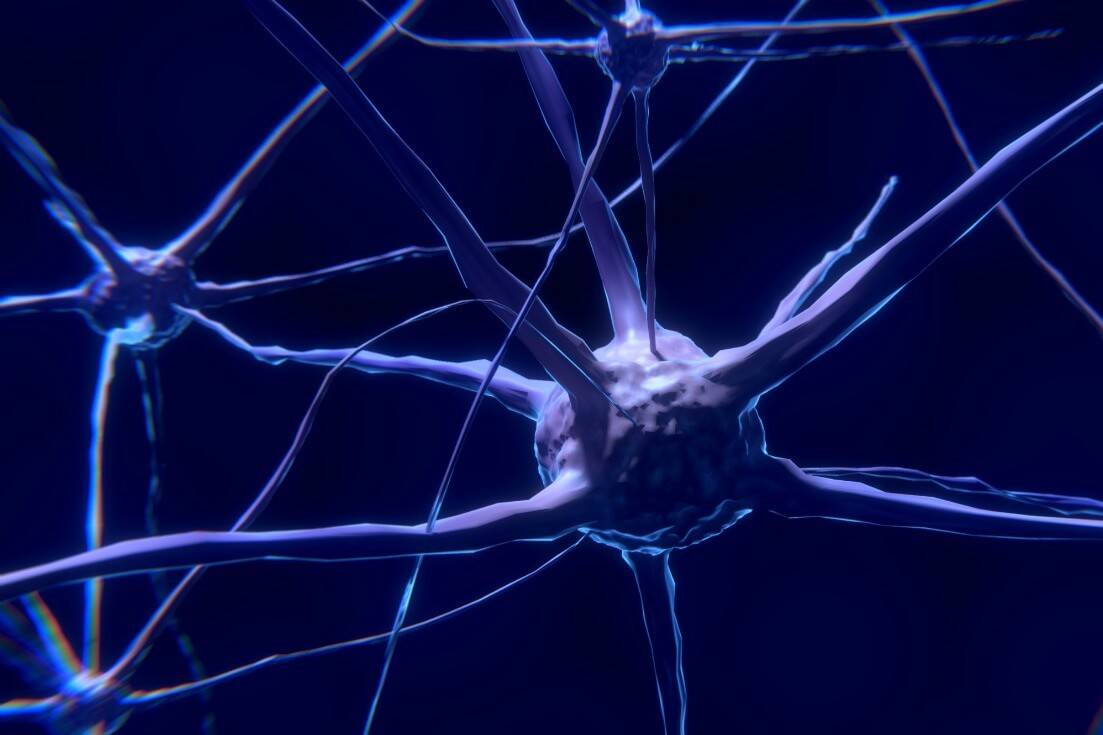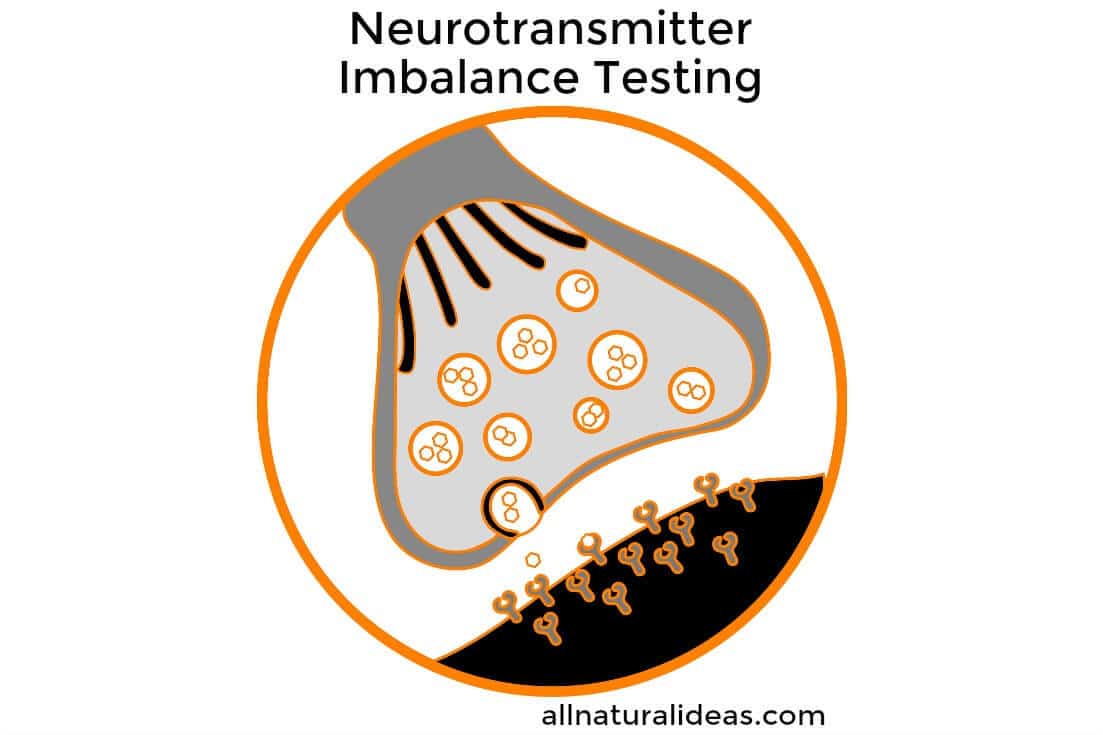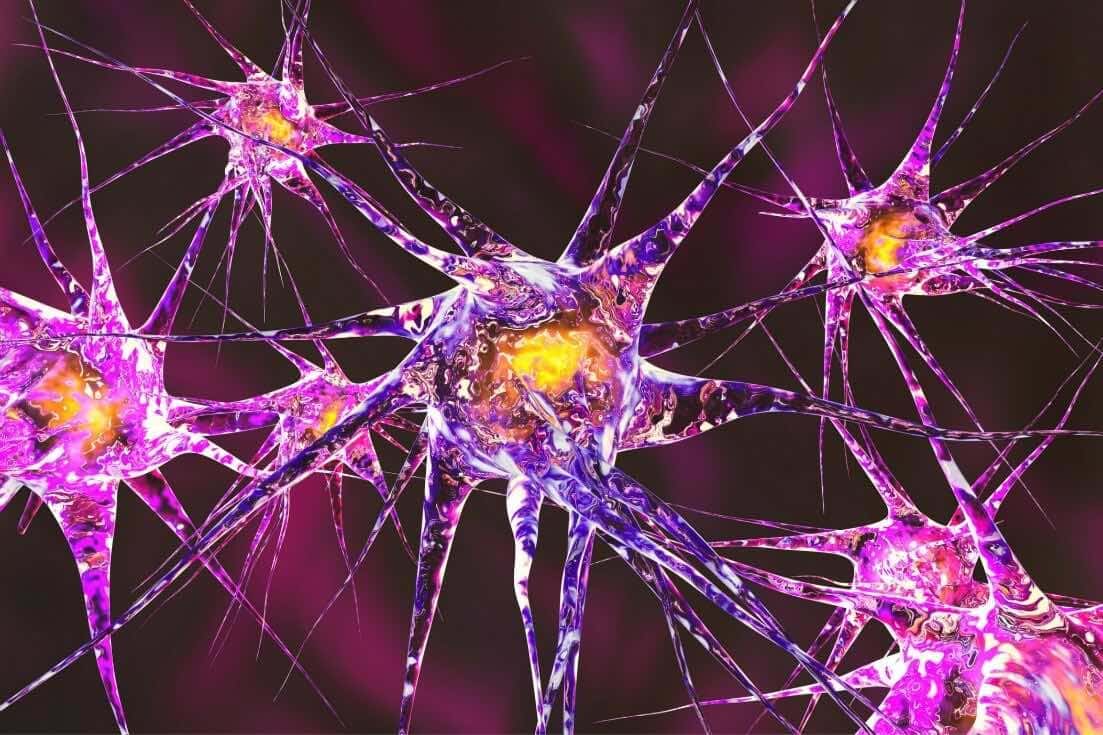An easy way to see if the chemical messengers in your brain are working properly is to test. But is neurotransmitter imbalance testing necessary?

Does your brain feel foggy? Is it hard for you to focus? Do you have trouble sleeping and staying asleep? Are you putting weight on easily? Do you have anxiety, depression or mood swings?
Sounds like the intro to a TV commercial for a pharmaceutical drug, doesn’t it? Well, it turns out, these personal questions could also be a plug for neurotransmitter testing.
In the natural health market, biomarker testing is becoming increasingly popular. That’s because an ever-increasing amount of people suffer from stress-related health imbalances.
Neurotransmitter imbalance testing is touted as a simple and effective method to determine the root cause of many adverse conditions. But are neurotransmitters really the root cause of 21st century western maladies?
If you’re low in a certain neurotransmitter (say, serotonin or dopamine) or have an imbalance, should you rush out and buy some brain health supplements? Not necessarily. But before we explain this answer, let’s talk about neurotransmitters in general.
What are neurotransmitters?
Communication signals
You know how you really don’t directly communicate with that many people anymore? Instead of face-to-face contact or even talking to people on the phone, you probably communicate with most people indirectly (social media, for example).
Well, your brain has about 100 billion nerve cells. These nerve cells are called ‘neurons.’ And your neurons are kind of like, well, you, in terms of how they communicate.
If you’re walking down the street and there’s a vicious looking dog approaching, your neurons do not directly communicate with each other and tell you to walk the other way and fast!
Nope, your neurons rely on chemicals to communicate with each other. These chemicals are your neurotransmitters. Think of neurotransmitters as your body’s social media.
Just like a post that goes viral, neurotransmitters transmit signals from one neuron to the next. Every single emotion (from a smiley emoji to a frowny one) you experience is influenced by neurotransmitter chemicals.
These chemicals attach at receptors which are all over your body. Your mental well-being, your sleep, sex drive, and focus are all influenced by many factors, including your neurotransmitter levels and balance.
The blood-brain barrier
Neurotransmitter health is also determined by how effectively your chemical messengers are crossing the blood-brain barrier. To understand what this means, let’s use this analogy:
If you never left your house, you’d probably become depressed. Well, that’s kind of how your neurotransmitters work, too. Your body’s chemical messengers must get out of their “comfort zone” and “cross to the other side of town.”
This other side of town is known in the body as the blood-brain barrier. Crossing the blood brain barrier means that your body’s chemical messengers are able to travel and effectively communicate beyond their immediate home turf.
The home turf is the central nervous system. The ‘other side of town’ in the analogy is the peripheral nervous system.
But stress of all kinds can interfere with the messaging between neurotransmitters and neurons. And although the prefix “neuro” implies ‘brain’, your neurotransmitters are intractably closely related to your immune system.

What do neurotransmitters do?
Your neurotransmitters are like the modem and router for your Internet connection. They control communication throughout your body.
And just like the power of the Internet allows you to communicate with the whole world, your neurotransmitters are like your body’s Internet. Because they facilitate communication throughout your body, your neurotransmitters affect every cell in your body.
The reason why more people are getting neurotransmitter testing is because it’s difficult to pinpoint why certain symptoms are experienced.
For example, if you wake up feeling exhausted every morning, even when sleeping 8 hours a night, you may have a neurotransmitter deficiency.
And that fatigue you’re experiencing could be a result of several different root causes. And for one person, not having enough of a certain neurotransmitter could be the root cause of fatigue, while another person also suffering from chronic fatigue may be low (or excessively high) in a completely different neurotransmitter.
A neurotransmitter imbalance test, then, identifies your where your unique chemical messengers may be off balance. But if you do suffer from fatigue, depression, low libido, poor concentration, etc., is neurotransmitter testing the best first step to correct imbalances? Perhaps not.
The gut-brain connection
Nutritional deficiencies
Many people that suffer from anxiety, depression, etc. have digestive problems. And since this is the case, wouldn’t the first step to address these issues be to heal the gut?
And is neurotransmitter imbalance testing alone able to correct lifestyle deficiencies that have led to, say, anxiety, in the first place? Neurotransmitter testing does find imbalances. And once those imbalances are identified, supplements can be recommended by a health professional.
However, getting back to the above question, is your problem really a neurotransmitter deficiency, or is it something else. Perhaps your problem really is poor diet or poor digestion. Maybe you’re not able to digest nutrients efficiently.
Maybe before all the food you eat gets broken down into its usable nutrients, undigested nutrients leak through the small intestine wall. Then, they enter the bloodstream and ultimately circulate as inflammatory ticking timebombs!
And maybe, just maybe, your lack of sleep is causing your body’s inability to repair itself. Perhaps you are in a state of chronic stress and you’re body is doing what it needs to do to survive. And right now your body doesn’t really care if you have anxiety or depression.
Potential leaky gut
These conditions are secondary to your body’s determination to fight another day and keep you alive. So if this is the case, you may have a leaky gut and aren’t managing your stress.
Will getting a neurotransmitter test going to magically cure you? Maybe. Maybe not.
Is correcting a potential serotonin imbalance (serotonin is a neurotransmitter that helps you keep calm) going to help you digest nutrients better? And, will a neurotransmitter test kill the parasites if you happen to have intestinal parasites?
Consider this diatribe a strong recommendation to at least consider. Now you just need to find a health professional who can help you heal your gut and teach you how to manage stress levels.
Whew! Now that that part of the lecture is out of the way, let’s see how your mind can get happy again. And, let’s see why you should consider neurotransmitter testing.

Neurotransmitter quiz
Neurotransmitter testing may have its place. However, this scholarly research article says it’s ineffective. And, so does this women’s health functional medicine blog. Certainly, though, there’s a lot of anecdotal evidence to support it.
One hypothetical person reports having panic attacks, then gets a neurotransmitter test (typically a urine sample), and after taking the appropriate amino acids to correct the imbalance, is cured of the attacks. There’s lots of neurotransmitter success stories like these.
However, some people have also reported that their anxiety or depression became worse after receiving a neurotransmitter test and the subsequent supplements to address the imbalance.
There are a lot of websites that try to sell neurotransmitter testing by hooking you with an online quiz. The neurotransmitter quiz is a series of questions. For each affirmative answer, you add a corresponding number of points.
For example, a neurotransmitter quiz to assess if you have a potential neurotransmitter imbalance could include a section about stress. Some of the questions may include perhaps:
- Do you often feel pressure?
- Are you having trouble relaxing?
- Do you get upset or angry easily?
- Have you put on excess weight recently?
- Does your body get cold, especially your hands and feet?
Did you answer yes to all the questions? Maybe you’ve accumulated a certain amount of points from each answer. Companies that offer neurotransmitter testing may tell you that you have a neurotransmitter deficiency based on your answers.
Some of the questions above that relate to stress and anxiety. The neurotransmitter quiz may indicate you have a deficiency in either serotonin or GABA. These are two neurotransmitters that help calm the body.
Neurotransmitter test online
The neurotransmitter quizzes are effective marketing tools. They are used by companies to help sell neurotransmitter tests. If you are told that you may have a neurotransmitter imbalance, then you’ll be more likely to order a test online.
Do you live in a rural area? Is it difficult for you to visit a healthcare professional that offers neurotransmitter testing? If not, it might be more beneficial for you to meet in person with a health expert. They can offer you neurotransmitter testing as well as nutritional therapy.
Neurotransmitter imbalance testing for anxiety
Some neurotransmitters are called “excitatory.” They stimulate actions in the body. These excitatory neurotransmitters include dopamine, GABA, norepinephrine, epinephrine, glutamate, histamine and PEA.
For some people who have anxiety, these neurotransmitters sometimes show up on a neurotransmitter test as being out of balance. Specifically, they have too much of some of these excitatory neurotransmitters.
So-called “brain supplements” can be purchased online to correct neurotransmitter imbalances. However, self-medicating with supplements is never a good idea. You could actually make your anxiety worse.
Again, try to find an expert on neurotransmitter testing in your area. And better yet, first work on healing your gut by getting tested for food allergies, parasites, etc.
Also, learn how to manage your stress. You can take relatively safe stress-reducing herbs such as adaptogens.
Your anxiety may indeed be linked to neurotransmitter imbalance. However, more than likely, it’s caused by additional factors as well.






